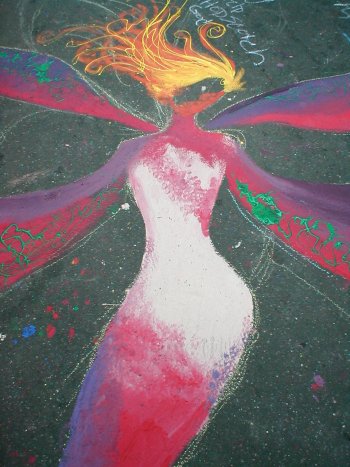[Let's take a break from criticizing George Orwell, in order to read him carefully, and perhaps praise him a bit.]
George Orwell published
The Road to Wigan Pier in 1936, shortly before he went to Spain to fight for the Republican cause. It's a book that mainly only Orwell scholars read regularly these days, but I've found it to be an incredibly satisfying read. The first half is the more gripping from a narrative point of view -- Orwell provides detailed, first-hand accounts of what life is like in the industrial north in the 1930s (a depressing decade). The chapter on coal-mining has a visceral heft, and the chapter on housing conditions in towns like Wigan is horrifying.
The second half of the book is a challenging, self-referential meditation on socialism. Orwell's arguments are partly based on his direct experiences of people suffering under the effects of industrialized capitalism. But in another way his ideas are based on himself; class is as much about origins as it is about income. In England especially, class doesn't wash off easily; the business about accents, for instance, is still an issue today.
Orwell was from a modest background economically; his father Richard Blair worked as a low official in Burma and then in India. Orwell (real name: Eric Arthur Blair) went to school on full scholarship, and from that point on had the education, taste, and the accent of a gentleman. It colored every aspect of his life: Orwell's acquaintances recorded his scrupulosity with regards to dress and decorum, sometimes with great amusement.
Orwell begins his critique on class and socialism in
The Road to Wigan Pier with a meditation on his personal experience of imperialism, an institution he felt to be profoundly evil. There are revealing passages like this:
The truth is that no modern man, in his heart of hearts, believes that it is right to invade a foreign country and hold the population down by force. Foreign oppression is a much more obvious, understandable evil than economic oppression. Thus in England we tamely admit to being robbed in order to keep half a million worthless idlers in luxury, but we would fight to the last man sooner than be ruled by Chinamen; similarly, people who live on unearned dividends without a single qualm of conscience, see clearly enough that it is wrong to go and lord it in a foreign country where you are not wanted.
This is a simple observation, but I think it's important, as it sets the stage for Orwell's turn, in his own developing intellectual life, to the matter of class. Before I get into that, I wanted to quote another passage, which speaks to the putative beneficial effects of Empire -- a subject that has recently been brought into view again because of Niall Ferguson's work (especially his book
Empire). Orwell was in some way sensible to the possibly beneficial effects some of his colleagues were having on the colonies:
So far as my observation goes nearly all Anglo-Indian officials have moments when their conscience troubles them. The exceptions are men who are doing something which is demonstrably useful and would still have to be done whether the British were in India or not; forest officers, for instance, and doctors and engineers. But I was in the police, which is to say that I was part of the actual machinery of despotism. Moreover, in the police you see the dirty work of Empire at close quarters, and there is an appreciable difference between doing dirty work and merely profiting by it.
The exposure to the enforcer's side of empire gives the lie to its idealism. (I'll probably have more to say about this when I blog on Ferguson's work sometime soon.)
The thing about class -- and the same could be said, I think, of capitalism itself -- is that it's all very well to identify its pernicious effects, but it's another thing entirely to actually eradicate it as a social reality. Orwell was suspicious of revolutionaries who didn't themselves know people of the working class, and who in their thinking often reinforced their own privileged class status. As he put it,
We all rail against class-distinctions, but very few people seriously want to abolish them. Here you come upon the important fact that every revolutionary opinion draws part of its strength from a secret conviction that nothing can be changed.
I think more than a few people of the left in the U.S. would have to secretly admit that they wouldn't want to sacrifice their comfortable standard of living to ensure that people in Bangladesh, say, had access to housing, clean water, and electricity. It would be more honest to say, with Orwell, that we are actually pro-Capitalism while also being (hopefully) pro-Justice. Supporting the idea of regulated free markets doesn't preclude an emphasis on social welfare, or on the distribution of wealth. But it does require that we respond to the fact the current economic system
works.
[This applies to the current conjuncture in another way: I personally find some of the more doctrinaire Marxist arguments against globalization to be insupportable. And yet, there are few on the left who are willing to say they embrace a form of globalization. I think it's time to pursue humane alternatives to Marxist models of critics like Hardt and Negri. Right now there aren't too many.]
In the 1930s revolutionary socialists and communists were quite a bit more mainstream in English and American intellectual life than they are today. Orwell knew their arguments intimately, and sympathized deeply with their goals. Indeed, the first half of
The Road To Wigan Pier is a blistering attack on the harsh working and living conditions of the English working class of his day. And yet he felt that intellectualized socialism, with its emphasis on absolute mechanization and total efficiency, was somehow deeply dehumanizing. In this book, as in
Animal Farm, Orwell develops no 'strong' (as in ideologically coherent) economic arguments as a counter to Marx and Engels. Rather, what replaces socialism is a kind of humanist pragmatism. That is how I read it anyways; Orwell himself continued to use the language of ideals:
The only thing for which we can combine is the underlying ideal of Socialism; justice and liberty. But it is hardly strong enough to call this ideal 'underlying.' It is almost completely forgotten. . . . The job of the Socialist is to get it out again. Justice and liberty! Those are the words that have got to ring like a bugle across the world. For a long time past, certainly for the last ten years, the devil has had all the best tunes [here he is referring to Fascism]. We have reached a stage when the very word 'Socialism' calls up, on the one hand, a picture of aeroplances, tractors and huge glittering factories of glass and concrete; on the other, a picture of vegetarians with wilting beards, of Bolshevik commissars . . . Socialism, at least in this island, does not smell any longer of revolution and the overthrow of tyrants; it smells of crankishness, machine-worship and the stupid cult of Russia. Unless you can remove that smell, and very rapidly, Fascism may win.
Despite his stated desire to "return" to the ideals of Socialism, what Orwell is really doing is criticizing the intellectual tendency to idealize. And he is doing it for a practical reason -- the urgent need to respond to Fascism.
Orwell is ideologically inconclusive; he doesn't provide a road-map even for his own times, much less our own. What he does offer, however, is an example in rigorous moral thinking. He was willing to fight for his country (and for other countries) when the cause was just. And he wasn't just playing: in Spain, he shot at the enemy, and probably personally killed some people. For that reason he's been championed by liberal hawks of the present era, most notably Christopher Hitchens (see Hitchens' book
Why Orwell Matters for more on this).
But this is not the only way to read Orwell. I have to believe Orwell would have drawn back from the cynical reasoning, distortions, and padded arguments that led the Blair and Bush to the current war in Iraq. Here Orwell as an anti-Imperialist thinker trumps Orwell as a pro-Just War thinker; he belongs to the Opposition much more than he does to the Administration.



